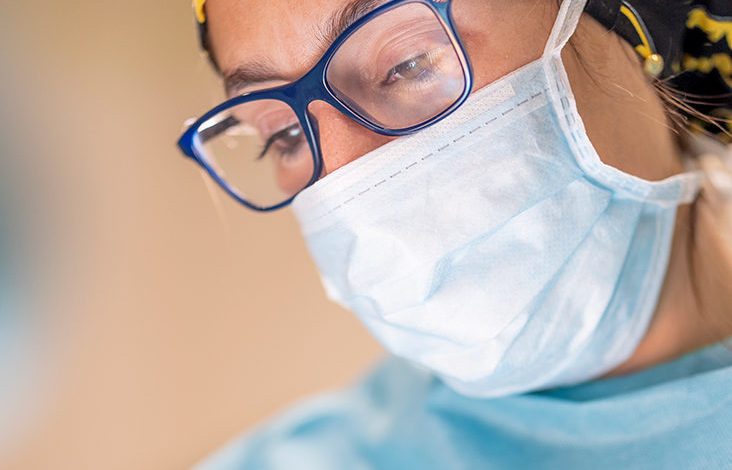Natural Remedies For Circumcision Healing

There are many ways to get rid circumcision scarring or prevent infection. Natural methods can be used to heal your body without the need for prescriptions or medical treatment. Look out for circumcision clinic adelaide.
Swollen penis
After circumcision, symptoms of a swollen pectoral area include redness, swelling and pain. Two to three days after surgery, the first dressing change is usually made. If the dressing doesn’t change within a week of surgery, it might be time to take steps for further infection prevention.
Swelling after surgery is normal, but the severity can vary from person-to-person. Swelling is more noticeable around the line of the circumcision and the tip of the penis.
The penis’s head will be reddish and may have a yellow discharge. It may look like a blister. As the penis heals, the skin will return to its normal color. It may take up 6 months for the swelling to subside.
Also, the foreskin can become reddened or blistered. This is usually caused by overgrowth of fungus. If you see this, contact your doctor immediately.
Infection is the most common complication after circumcision. Following the postoperative care instructions is the best way for you to avoid infection. If you experience bleeding or nausea, contact your doctor immediately.
By washing your circumcision wounds with warm soapywater daily, you can help prevent infection. You can also try to avoid alcohol and powders. To reduce swelling, wrap an ice pack in a tea towel.
An antibiotic ointment can be used on the head of the penis to help prevent infection. Petroleum jelly can also be used at the incision line and on the head of the penis to prevent pain and to keep the penis away from sticking to your diaper. You can also clean the area with a diaper wipe.
The most important thing to remember about circumcision pain is that it is temporary. After a few days, you’ll usually notice a slight decrease.
Bruising
It is common to have some bruising after circumcision. It can take up to a few weeks for the wounds to heal. But it is important to follow the instructions to help keep your penis clean.
A bandage is usually wrapped around the penis to prevent infection. For the first few days, it should be changed every 2 hours. The bandage also helps to reduce the swelling and helps to protect the wound.
Bleeding is the most common problem after circumcision. If the bleeding continues, a doctor might perform a hematologic exam. If the bleeding does not stop, it may be a sign of infection.
A painkilling tablet may be prescribed to relieve the pain. It is important to follow the directions and not exceed the maximum dosage.
You should also apply an antibiotic cream to the penis. If you have trouble with the pain, you may consider using a pacifier or boxers to help alleviate the pain. You can also apply a little petroleum jelly to the penis. This will make it stick to your underwear while you urinate and prevent discomfort.
It is important to clean the area under the skin bridge, which stretches from the edge of the circumcision back onto the glans. This area is very susceptible to accumulation of debris and is an important part of hygiene.
The tip of your penis may produce a foul-smelling, cloudy liquid. This is caused by bilirubin which is completely harmless.
After circumcision, some people may experience swelling at their penis tip. This will become more severe over the next two week, but it will gradually subside.
Pain
Pain may occur during circumcision healing. The pain is usually mild but can become severe for some people. It may last several weeks or even longer.
If you feel any pain after surgery, contact your doctor immediately. Your doctor can provide you with pain medication. Your doctor can also provide advice on how to care your incision.
Within the first few days of your procedure, you might notice a yellow-whitish layer over the incision. The film is not an indicator that you have infection but is a normal part the healing process. Usually, the film will disappear naturally.
Some men experience discomfort when they pass urine following surgery. This is because urine from a wet diaper may irritate exposed ventral urethral meatus. It can also cause chemical dermatitis.
On the head of your penis, you may notice a thin yellowish film. This will usually disappear in one week. A piece of tape might be found around the penis. The tape can fall off on its’ own. If the tape is not falling off or you notice bleeding from the tape, you should contact your doctor.
You should wash your incision area twice daily for a week. You should also apply antibiotic cream to the penis head. This will prevent the penis sticking to the diaper.
For the first few weeks after your circumcision, you shouldn’t lie on your back. Avoid major exams and activities that require standing. Some men find it beneficial to take a week off work to rest, recover and get ready for the next week.
After your circumcision, you should be able move around with no discomfort. You should take time to empty your bladder before retiring and during the night.
Scarring
The skin will become red and swollen within the first few days of a circumcision. The swelling will diminish in a week.
There are many methods to reduce scarring after circumcision. You can use silicone gel or sheets to cover the wound. The gel can help to protect your wound from infection. It is also useful to use a light bandage on the wound.
There are two types, the clamp and the shield methods of circumcision. The clamp method involves a small incision in the foreskin. The doctor then uses the scalpel to remove the foreskin.
The shield method involves a dorsal slit. A plastic bell-like device is then placed over the glans. The skin is then reattached onto the shaft using a stitch.
In most cases, no scarring is seen after routine circumcision in men. But keloids can form if the wound is infected.
Keloids are thick, tumor-like tissues that grow over a scar. They are not cancerous. They can be extremely painful. They can cause permanent scarring, if they are left on. If you believe you have a permanent scarring keloid, talk to your doctor.
If you experience pain, you may want to use a condom. This will prevent blood from clotting. To soothe the wound, you can also soak it in saltwater.
Aspirin may be recommended if you have bleeding from a wound. Do not exceed the recommended dose of painkillers. You can also use Vaseline to help prevent blood from sticking to the bandage.
You may want to avoid contact sports and swimming for the first few days. You can also wear loose, unlined underwear until your wound heals.
Prevention of infections
There are several ways to prevent infection during the healing process of circumcision. The circumcision helps to reduce the risk of infection as well as reducing the likelihood of other sexually transmitted diseases.
The first step in preventing infections during circumcision is to take care of the wound. After the procedure, it is important to clean and treat the wound with an antibiotic ointment and an emollient. Applying petroleum jelly to the head of the penis may also help reduce the chance of infection.
A second important way to prevent infection, is to avoid masturbation. Masturbation can cause serious wound damage and increase your risk of HIV and other sexually transmitted infections.
Bleeding is the most common complication following circumcision. The bleeding can be stopped by applying pressure to the wound for one minute. If bleeding is severe, a wound debridement may need to be performed.
Phimosis is another issue. Phimosis happens when the foreskin is not pulled back over the penis. This can cause tightness and scarring. To avoid infection and scarring, it’s important to clean the area every day.
When cleaning the area, caregivers should regularly wash their hands with soap and water. It is also important to apply a fresh gauze pad on the penis.
Balanitis is another common problem after circumcision. Balanitis is a condition where the penis’ head has become inflamed. It could be caused by irritation, a sexually transmitted infection, or a STI. Antifungal creams or antibiotic creams can be used for the treatment of the infection.
Skin bridges, inclusion cysts, and other complications can also occur after circumcision. These cysts could form along the incision edge. The skin bridges may collect debris and may require excision.




